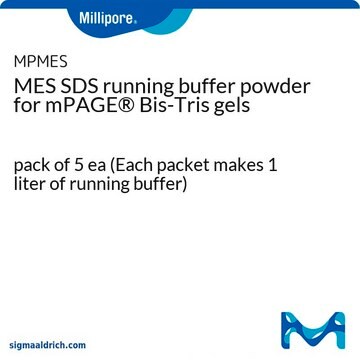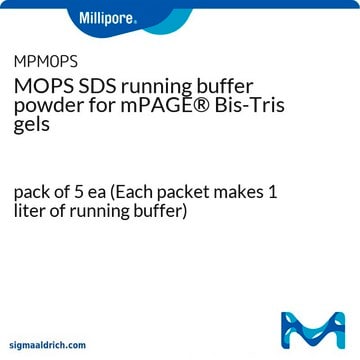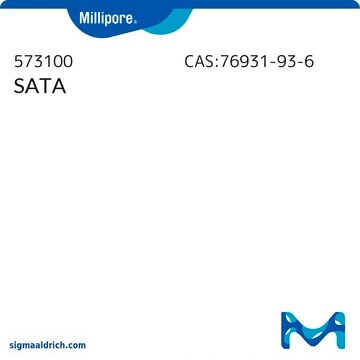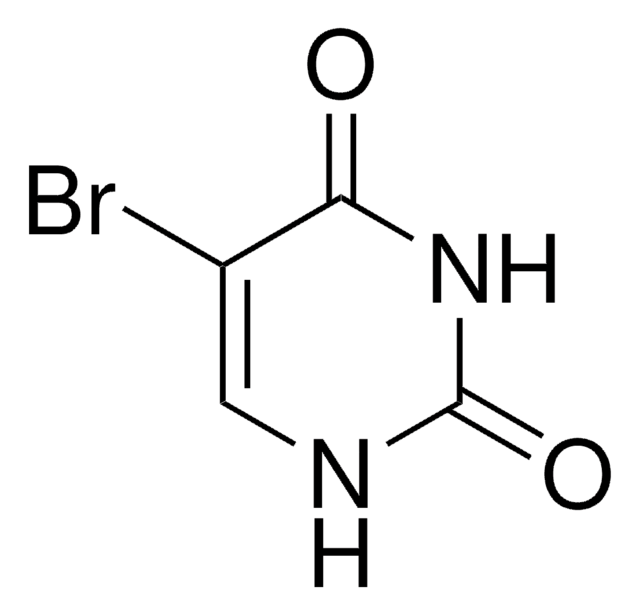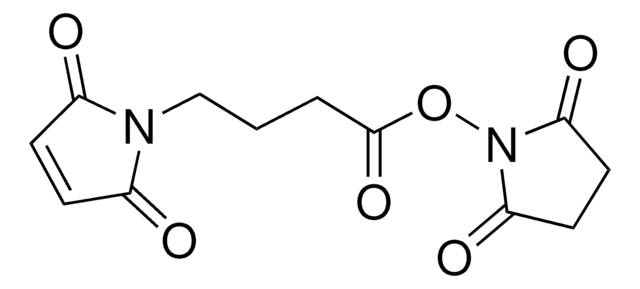I6256
2-Iminothiolane hydrochloride
≥98% (TLC), powder
Synonym(s):
2-Thiolanimine hydrochloride, 2IT, Dihydro-2(3H)-thiophenimine hydrochloride, Traut’s reagent
About This Item
Recommended Products
Quality Level
Assay
≥98% (TLC)
form
powder
impurities
≤5% Free sulfhydryl groups
mp
198-201 °C (lit.)
solubility
H2O: 100 mg/mL
functional group
thioether
storage temp.
2-8°C
SMILES string
N=C1SCCC1.Cl
InChI
1S/C4H7NS.ClH/c5-4-2-1-3-6-4;/h5H,1-3H2;1H
InChI key
ATGUDZODTABURZ-UHFFFAOYSA-N
Looking for similar products? Visit Product Comparison Guide
General description
Application
Other Notes
Signal Word
Danger
Hazard Statements
Precautionary Statements
Hazard Classifications
Acute Tox. 3 Oral
Storage Class Code
6.1C - Combustible acute toxic Cat.3 / toxic compounds or compounds which causing chronic effects
WGK
WGK 3
Flash Point(F)
Not applicable
Flash Point(C)
Not applicable
Personal Protective Equipment
Choose from one of the most recent versions:
Certificates of Analysis (COA)
Don't see the Right Version?
If you require a particular version, you can look up a specific certificate by the Lot or Batch number.
Already Own This Product?
Find documentation for the products that you have recently purchased in the Document Library.
Customers Also Viewed
Articles
Collagen molecules play a critical role in tissue architecture and strength, and in cell-matrix interactions as insoluble ligands to regulate the diverse phenotypic activities of cells.
Kanjiro Miyata (The University of Tokyo, Japan) provides insights on the rational design of polymeric materials for “smart” oligonucleotide delivery.
Our team of scientists has experience in all areas of research including Life Science, Material Science, Chemical Synthesis, Chromatography, Analytical and many others.
Contact Technical Service

